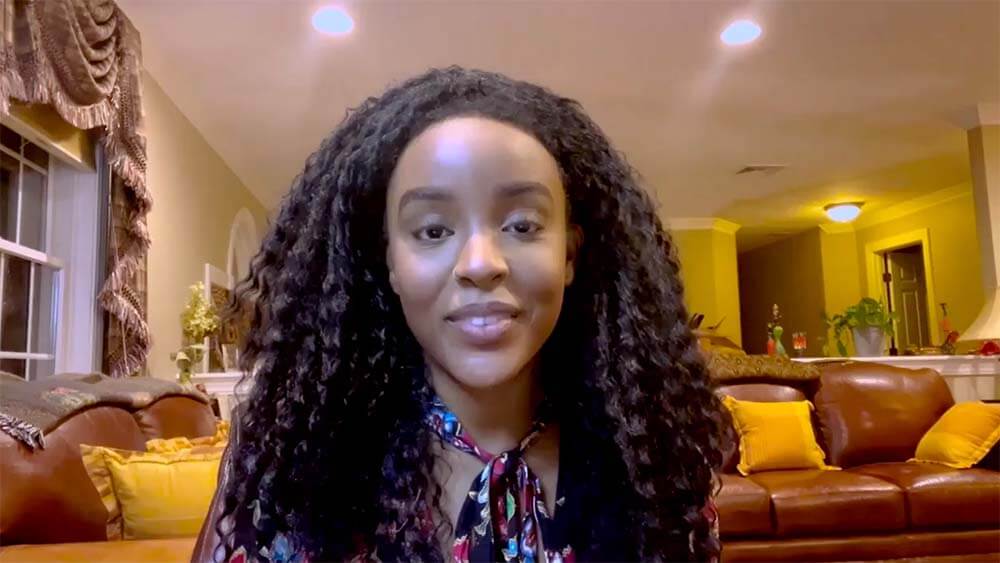
Environmental justice advocate, writer, and Rhodes Scholar Wanjiku “Wawa” Gatheru gives her keynote address virtually. (Screen grab)
When she first was introduced to the climate crisis, it was in the context of “decimal points and numbers and graphs that I could never understand — that I still don’t understand,” said environmental justice advocate Wanjiku “Wawa” Gatheru, who spoke on the Main Stage on Tuesday.
Environmentalism had always been presented to her “as this top-shelf issue,” said 23-year-old Gatheru, a graduate student at the University of Oxford, where she is studying environmental governance, and the founder of the organization Black Girl Environmentalist. “I felt bad for the polar bears and melting [ice] caps,” but, as a first-generation American of Kenyan descent, Gatheru struggled, she said, “to connect with how that was more important than other issues that felt more immediate.”
That viewpoint changed dramatically when, at 15, Gatheru took an environmental science class where the teacher integrated environmental justice into the curriculum, underscoring how “the social justice issues that we were all coming into at this age — racial justice, gender justice — have everything to do with the environment,” Gatheru said. “It was in this class that I learned that the environment had everything to do with me.”

Tech entrepreneur Mateo Salvatto also spoke Tuesday. Read our previous interview with Salvatto here.
She began to see the climate crisis, not as a set of facts and figures, but as a set of experiences, she said. “It was a story — actually, a saga — of heartbreak and loss, of millions of people that are being relocated, of climate refugees who are seeing their homelands surrender to the sea,” she said. “We’re seeing people experiencing famine in ways that they’d never seen before, and who are questioning the ways that they can live and have livable futures. We’re seeing children go out and strike on streets.” She realized, she said, “if I wanted to live a life, align with justice, and make sure that the people and places that I love most are protected, then fighting to solve the climate crisis would have to be at the forefront of my life.”
It’s a promise that she has kept, said Gatheru, who has been recognized for her work in collaboration with other activists and thought leaders as a 2020 Young Futurist by The Root. The problems posed by the climate crisis easily could feel overwhelming, Gatheru said. However, she’s found new perspective by reframing how she experienced the environment in the context of the things that are most meaningful to her, including her family’s generations-long history as farmers in Kenya. The fruits and vegetables that her mother grew in their backyard garden in her childhood home became one way in which Gatheru connected to her heritage and culture of farming, not as a story of the subjugation, but as a regenerative force.
“For me, the climate crisis is Mother Earth giving us very, very important feedback, Gatheru said. “She’s asking us to listen to her. She is telling us that the structures and systems that we’ve relied on for so long aren’t working.”
When faced with the climate crisis, we all have an opportunity to reframe our actions in the context of what is most meaningful to us, she said. Whatever it is that is most important to you, “climate change, as devastating as it is, presents us with the opportunity to not only save and protect those things,” she said, “but to create a future that is more just for all of us.”
Barbara Palmer is deputy editor of Convene.
